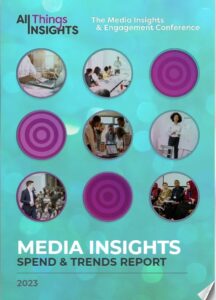Eastman finds that close to a quarter of U.S. and European consumers say they put a lot of effort into purchasing sustainable products and are willing to pay premiums for those products. Another half put in the effort, but are not willing to pay more. The desire for sustainable products and willingness to pay premiums is driven by high-income households (37%), Gen Zers (30%), and Millennials (27%) across the U.S. and Europe.

However, regardless of the consumer attitude towards sustainable solutions, those solutions must meet their needs and expectations for performance and quality before sustainable attributes are considered. In fact, quality and performance continually top the list of consumer purchase drivers across product categories, with sustainability consistently falling to the bottom of those lists. Even the most sustainable-minded consumers still look to quality and performance in their purchase decisions before sustainability is a factor. Given that these cohorts are more scrutinizing shoppers overall, the delta between their quality and performance needs versus sustainability needs is the same as those less sustainably minded (30-50 points depending on the product category).

With sustainability not top of mind to consumers when making purchase decisions, brands and retailers who are committed to offering sustainable solutions must be adept at (1) developing sustainable alternatives that do not compromise on performance and quality and (2) messaging how their sustainable alternatives will meet or exceed consumers’ primary needs.
A number of leading companies are shining examples on how to strike this balance. For example, Tesla, Nike, Burt’s Bees, among others are well-regarded for their sustainability credentials, but that is not their selling point. For Tesla, it’s about an innovative and exciting driving experience. For Burt’s Bees, it’s about natural ingredients that perform better than synthetics. For Nike, its about technical innovations that make athletes – or us regular folks – perform at their best.
Before sustainability can be a differentiator for a company, insight professionals must identify their company’s value proposition or reason for being, hold colleagues accountable to that vision as they look to add a sustainable layer to that story, and help marketing teams tell a robust, performance plus sustainability story to consumers across digital and physical touchpoints.
Next month’s post will debunk the myth that messaging sustainability to consumers is too complex. In fact, this is a topic where insight professionals can become an essential element to their company’s success in communicating to consumers around the world.
Click here for Justin Coates’ series for All Things Insights, “Exploring 10 Myths About Global Consumers & Sustainability.”
Contributor
-

Justin Coates is Eastman’s Head of Global Market Research & Consumer Insights, responsible for leading business intelligence, customer experience, user experience, foresighting, and consumer insights across Eastman. Before joining Eastman in 2017, Coates spent a decade at Cotton Incorporated managing their global consumer insights research and positioning himself as a thought leader on consumer trends with the world’s largest brands and retailers. He holds a Masters of Economics degree from North Carolina State University and a Bachelors of Arts degree in Political Science from High Point University. Coates lives with his wife and son in Kingsport, Tennessee.
View all posts






































































































